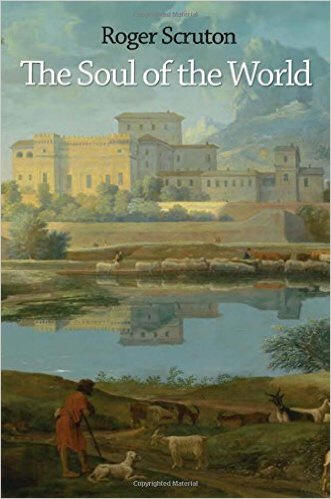Book Review
The Soul of the World
Roger Scruton
Princeton University Press
ISBN: 978-0691169286
 This
is a splendid philosophical meditation on the nature of the world and the
relationships that occur within it. Scruton argues that science alone
cannot fathom the nature of these relationships. One of the central
concepts we encounter in this book is that of cognitive dualism, an
exploration of what things mean as opposed to what they are made of.
Music, for example, is much more than a "sequence of pitched sounds" to
the discerning listener. Our experience and enjoyment of a piece of great
music is a transcendental experience. Cognitive dualism thus enables us to
distinguish between descriptive science and humanistic understanding.
This
is a splendid philosophical meditation on the nature of the world and the
relationships that occur within it. Scruton argues that science alone
cannot fathom the nature of these relationships. One of the central
concepts we encounter in this book is that of cognitive dualism, an
exploration of what things mean as opposed to what they are made of.
Music, for example, is much more than a "sequence of pitched sounds" to
the discerning listener. Our experience and enjoyment of a piece of great
music is a transcendental experience. Cognitive dualism thus enables us to
distinguish between descriptive science and humanistic understanding.
There is a human need to experience the sacred, says Scruton. In our relationships we are called to acknowledge the other as an individual subject: the I-You relationship cannot be reduced to mere biology. While Scruton is not at all hostile towards the good things found in scientific development, he is critical of scientism, of scientific reductionism. The idea that all aspects of life - art, music, relationships and morality - can be reduced to science is absurd. An authentically human outlook leads to an awareness of the intangible things of life, things that cannot be measured: love, vulnerability and suffering. Even science does not lay claim to know all there is.
And what of our experience of God? Scruton is not writing a work of Christian apologetics and it is not surprising to note an absence of doctrine. He says, rather, that people who are looking for God are not usually looking for proofs of his existence. Rather, they want to experience God himself, to enter into an I-You relationship with him. In the Catholic tradition, we encounter God daily by means of prayer and the sacraments. Our search for the intangible is by means of tangible things.
Sacredness for Scruton certainly means religion. But it is much more for it is there in our daily experiences, with nature, art, music and our relationships.
Roger Scruton has written an elegant defence of the sacred, a quiet and often subtle rejection of the new atheism.
Reviewed by Dr Pravin Thevathasan
